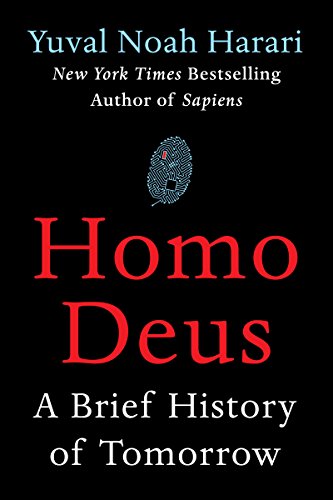
#stplugged in. And ‘everything’ means more than just humans. It means every thing. Our bodies, of course, but also cars in the street, refrigerators in kitchens, chickens in their coops, and trees in the jungle—all should be connected to the Internet-of-All-Things.” Thus, the greatest good for the greatest number in Harari’s utilitarian calculus is the free flow of information, and the greatest sin in the Dataism religion is to block data flow.
This is the most speculative and necessarily uncertain part of Homo Deus, and Harari admits that “we cannot really predict the future.” Thus, “all the scenarios outlined in this book should be understood as possibilities rather than prophecies.” We evolved as bipedal primates on the African plains, and our senses and brains are geared toward projecting the immediate future based on the most recent past. “When we think about the future,” Harari concludes, “our thoughts and actions are usually constrained by present-day ideologies and social systems.” He wants us to try to think beyond these constraints, and, to that end, I return to Arthur C. Clarke and another observation he made in his 1951 book, The Exploration of Space: “If we have learned one thing from the history of invention and discovery, it is that, in the long run—and often in the short one—the most daring prophecies seem laughingly conservative.” Call that Clarke’s Fourth Law.
No comments:
Post a Comment